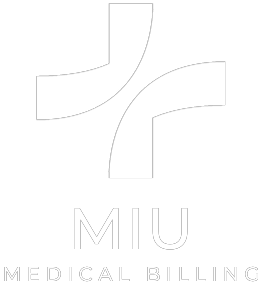The Impact of Denied Claims on Healthcare Revenue
Denied claims in medical billing pose a significant challenge to healthcare providers, impacting their financial stability and operational efficiency. These denials disrupt cash flow and require additional time and resources to resolve, ultimately affecting patient care. As the healthcare landscape becomes increasingly complex, mastering denial management has become crucial for maintaining a healthy revenue cycle. This article explores effective strategies for reducing denied claims in medical billing, offering insights into how healthcare providers can optimize their billing processes and minimize revenue loss.
Understanding the Root Causes of Claim Denials
To effectively reduce denied claims in medical billing, it’s essential to understand their root causes. Common reasons for denials include incorrect patient information, coding errors, lack of prior authorization, and non-covered services. By identifying these patterns, healthcare providers can implement targeted solutions to address specific issues. Analyzing denied claims in medical billing allows organizations to pinpoint recurring problems and develop proactive measures to prevent future denials. This process often involves collaboration between billing staff, clinical teams, and administration to ensure a comprehensive approach to denial prevention.
Implementing Robust Front-End Verification Processes
Implementing robust front-end verification processes is one of the most effective strategies for reducing denied claims in medical billing. This involves thorough patient registration, insurance eligibility checks, and benefit verification before services are rendered. By ensuring accurate patient information and confirming coverage details upfront, healthcare providers can significantly reduce the likelihood of denials. Medical Billing Services that focus on comprehensive pre-service verification help minimize errors that lead to denied claims in medical billing, setting the stage for smoother claims processing and faster reimbursement.
Leveraging Technology for Accurate Coding and Documentation
Accurate coding and documentation are crucial in preventing denied claims. Leveraging advanced coding software and electronic health record (EHR) systems can greatly improve coding accuracy and completeness. These technologies can flag potential coding errors, suggest appropriate codes based on clinical documentation, and ensure compliance with the latest coding guidelines. By investing in robust coding tools and providing ongoing training to staff, healthcare providers can significantly reduce coding-related denials. This technological approach to Medical Coding and Auditing enhances the overall quality of claims submitted, minimizing the risk of denials due to coding inaccuracies.
Streamlining the Authorization Process
Prior authorization requirements are a common source of denied claims in medical billing. Streamlining the authorization process can significantly reduce denials related to lack of or incorrect authorization. This involves implementing systems to track authorization requirements for different payers, automating authorization requests where possible, and ensuring the timely submission of necessary documentation. By creating a standardized workflow for managing authorizations, healthcare providers can minimize oversights and reduce the likelihood of denied claims in medical billing due to authorization issues.
Enhancing Staff Training and Education
Continuous staff training and education are essential for reducing denials in medical billing. As billing regulations and payer requirements constantly evolve, keeping staff up-to-date is crucial for maintaining compliance and accuracy. Regular training sessions on coding updates, payer-specific requirements, and best practices in claim submission can significantly improve the quality of claims submitted. Additionally, cross-training staff across different areas of the revenue cycle can provide a more comprehensive understanding of the billing process, leading to fewer errors and denied claims in medical billing.
Implementing a Robust Denial Management System
A key strategy in reducing denied claims in medical billing is implementing a robust denial management system. This system should include processes for quickly identifying, categorizing, and addressing denials. Denied Claims Analysis and Resolution tools can help healthcare providers track denial patterns, prioritize high-impact denials, and develop targeted strategies for resolution. An effective denial management system also includes workflows for appealing denials, resubmitting corrected claims, and following up with payers. By systematically addressing denied claims in medical billing, healthcare providers can recover more revenue and prevent similar denials in the future.
Utilizing Data Analytics for Continuous Improvement
Data analytics plays a crucial role in reducing denied claims in medical billing. By analyzing denial trends, healthcare providers can identify recurring issues and implement targeted improvements. Advanced analytics tools can provide insights into denial rates by payer, service type, or provider, allowing for more strategic denial management efforts. This data-driven approach enables healthcare organizations to focus their resources on the most impactful areas for reducing denied claims in medical billing. Integrating data analytics into Revenue Cycle Management Solutions can lead to continuous improvement in billing processes and overall financial performance.
Conclusion: A Proactive Approach to Denial Management
Mastering denial management is essential for healthcare providers looking to optimize their revenue cycle and reduce financial losses. By implementing robust front-end processes, leveraging technology for accurate coding, streamlining authorizations, enhancing staff training, implementing effective denial management systems, and utilizing data analytics, healthcare organizations can significantly reduce denial of medical billing. This proactive approach not only improves financial performance but also enhances patient satisfaction by reducing billing-related issues. As the healthcare industry continues to evolve, staying ahead of denial management challenges will remain crucial for maintaining a healthy bottom line and providing quality patient care.




